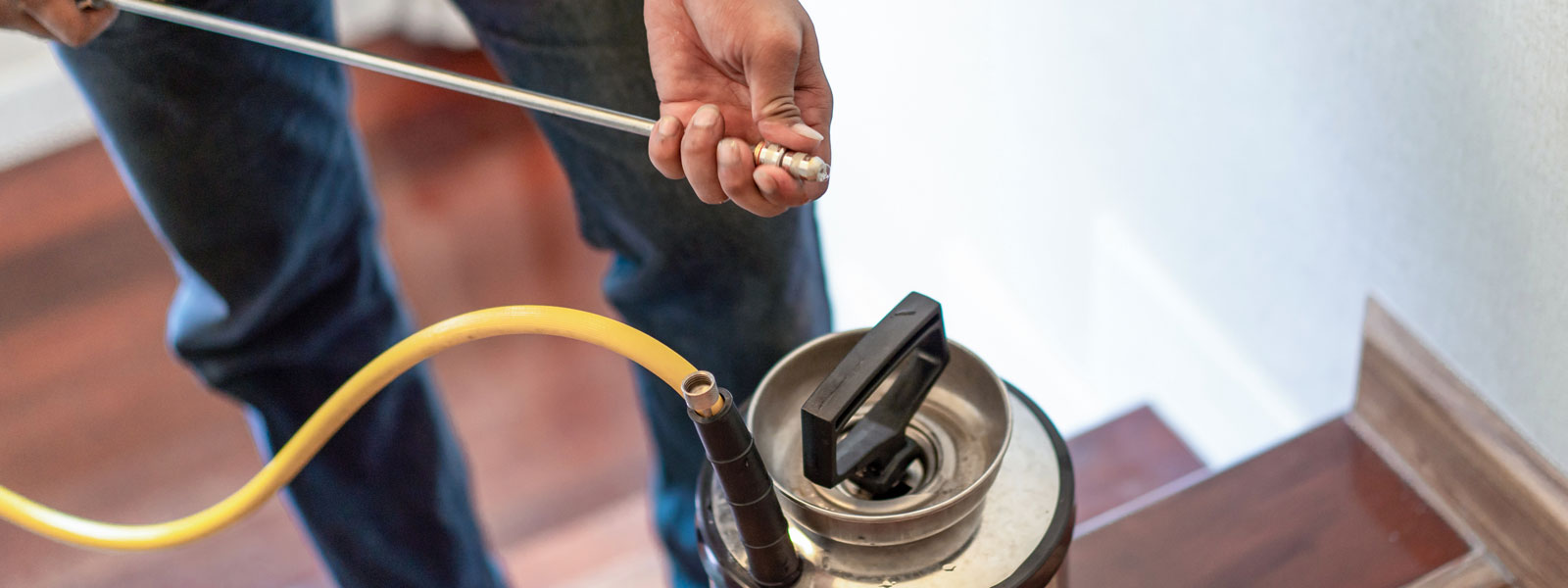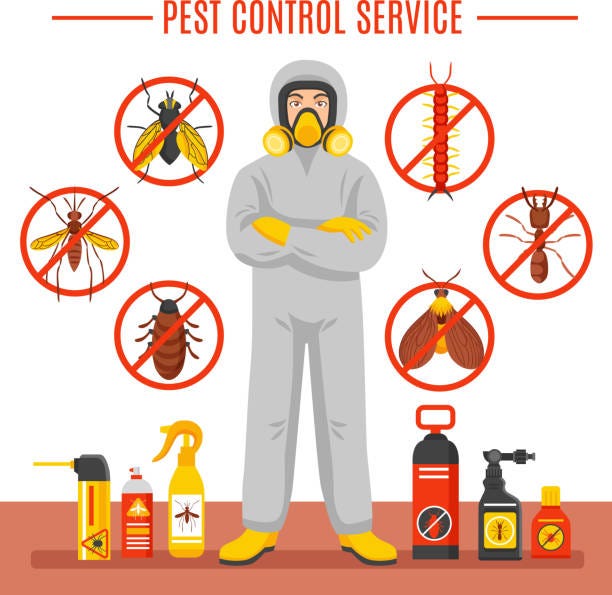Recognizing the Various Strategies to Insect Control: A Comprehensive Overview

All-natural Parasite Control Methods
Employing green techniques such as companion planting and biological bug control is necessary for effectively managing bugs in agricultural settings. Companion growing entails expanding different crops in closeness to discourage insects, enhance nutrient uptake, and enhance overall plant health.
Organic bug control entails introducing all-natural killers or microorganisms to manage pest populaces. Ladybugs, for example, feed on aphids, regulating their numbers without the need for chemical pesticides. Another instance is making use of Bacillus thuringiensis (Bt), a bacterium that targets details insect bugs while being safe to human beings, animals, and useful bugs.
These environmentally friendly techniques not just reduce the dependence on synthetic chemicals yet also assist maintain biodiversity and dirt health. By including all-natural bug control approaches into agricultural techniques, farmers can accomplish sustainable bug management while decreasing unfavorable influence on the setting.

Chemical Parasite Control Solutions
Along with natural bug control techniques, the application of chemical bug control remedies plays a substantial duty in effectively managing pest populations in agricultural environments. Chemical bug control services are formulated to target specific insects that might create substantial damages to crops. These solutions usually have synthetic chemicals that are created to eliminate insects promptly and efficiently.
One of the vital benefits of chemical pest control services is their performance in controlling bug invasions on a huge range. Farmers can use these solutions utilizing numerous approaches such as splashing, airing out, or seed therapy to shield their crops from dangerous pests, weeds, and illness. Furthermore, chemical bug control services are fairly easy to apply and can supply quick outcomes, aiding farmers guard their yields and reduce financial losses.
Nonetheless, it is vital to use chemical pest control services carefully to minimize prospective adverse influence on the environment, non-target organisms, and human health and wellness. Correct application techniques, adherence to security standards, and normal tracking are vital to make certain the responsible use of chemical insect control solutions in farming techniques.
Biological Pest Control Approaches
Biological pest control approaches leverage all-natural killers or pathogens to manage parasite populations in agricultural settings properly. One common biological control technique is the introduction of all-natural adversaries, such as ladybugs or parasitical wasps, to target particular pests.
One more biological control technique includes utilizing virus like bacteria, viruses, or fungis to contaminate and kill parasites. On the whole, biological parasite control strategies offer a sustainable and targeted option to pest administration in farming.
Integrated Parasite Administration (IPM)
Integrated Insect Management (IPM) is a thorough approach that incorporates various pest control strategies to efficiently take care of and decrease pest populaces in farming systems. IPM concentrates on lasting avoidance of bugs through a combination of biological, cultural, physical, and chemical control approaches. By integrating these different strategies, IPM aims to lower dependence on chemical pesticides, lessen environmental effect, and advertise lasting parasite administration methods.
One secret element of IPM is using biological controls such as natural predators, parasites, and pathogens to regulate bug populations. This technique harnesses the power of nature to preserve an equilibrium in between pests and their natural opponents without creating injury to the atmosphere.
In addition, IPM includes cultural techniques like crop rotation, hygiene, and environment control to create negative problems for bugs and interrupt their life cycles. Physical controls such as catches, obstacles, and composts are additionally used to avoid pest infestations.
Physical and mechanical Parasite Control Techniques
Utilizing non-chemical approaches, such as mechanical and physical insect control strategies, is a vital element of detailed bug management techniques, building on the structure of Integrated Parasite Administration's holistic technique. Mechanical insect control involves making use of physical barriers or catches to avoid bugs from accessing and damaging crops or frameworks. This technique can include methods like installing screens on windows, utilizing row covers in agriculture, or using sticky traps to catch bugs.
Physical pest control approaches, on the various other hand, concentrate on straight getting rid of parasites with physical methods. Utilizing warm treatments to remove bed insects or vacuuming up parasites like spiders or ants can be reliable means to take my company care of problems without the use of chemicals. By including these physical and mechanical insect control methods into an Integrated Pest Administration plan, individuals and specialists can lower dependence on chemicals while still effectively minimizing and handling pest populations damage.
Conclusion

In enhancement to all-natural pest control approaches, the application of chemical bug control solutions plays a substantial function in effectively taking care of pest populaces in agricultural settings.One of the key benefits of chemical pest control options is their performance in managing insect infestations on a huge range.Integrated Parasite Administration (IPM) is a thorough approach that combines different parasite control techniques to efficiently manage and lessen pest populaces in agricultural systems.Making use of non-chemical methods, such as physical and mechanical bug control methods, is an essential facet of extensive bug monitoring approaches, constructing upon the structure of Integrated Insect Administration's alternative technique. By integrating these physical and mechanical bug control techniques right into an Integrated Parasite Administration strategy, try here specialists and individuals can minimize dependence on pesticides while still successfully decreasing and handling pest populations damage.